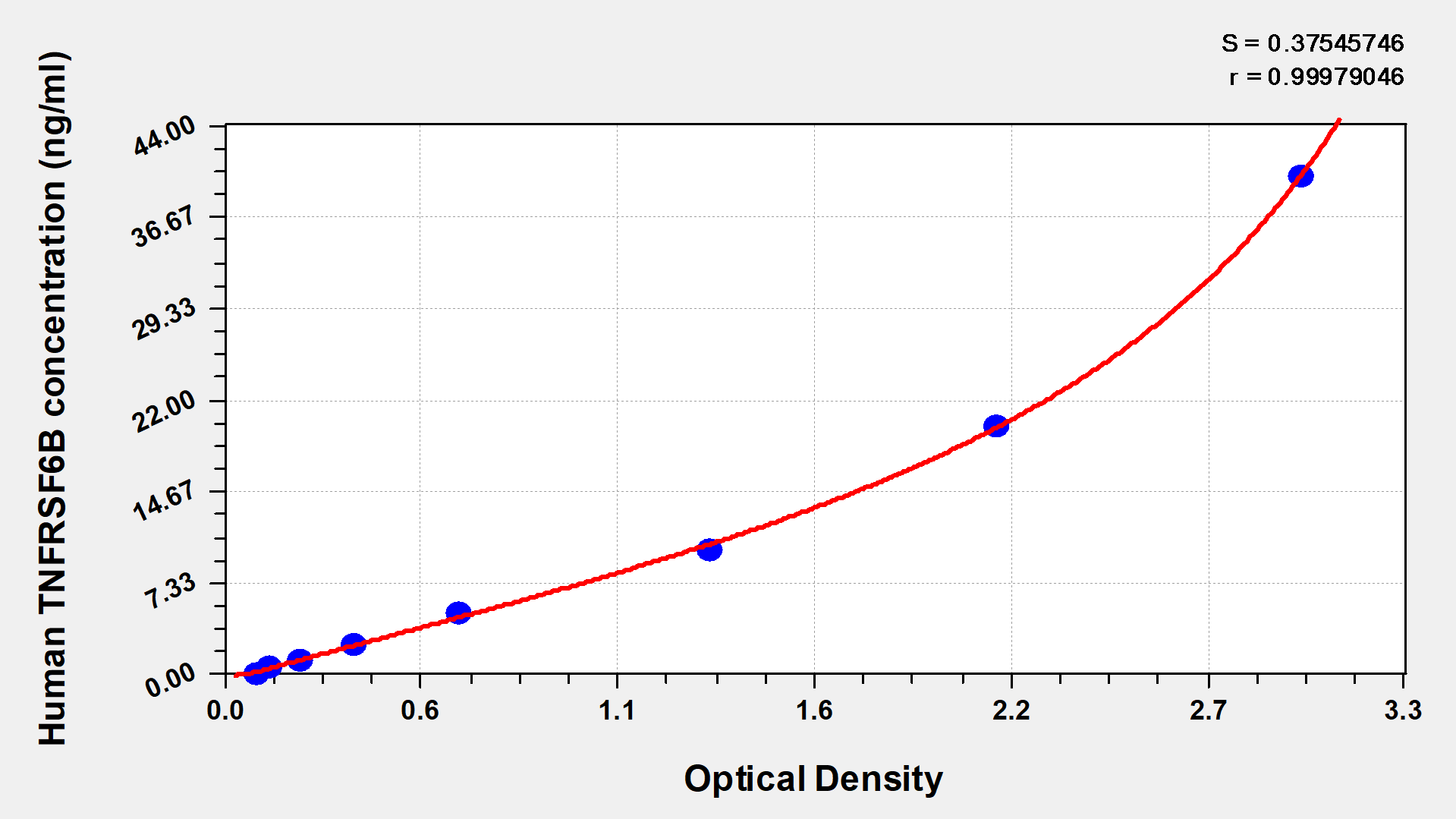This human TNFRSF6B ELISA kit employs the quantitative sandwich enzyme immunoassay technique to measure the levels of human TNFRSF6B in multiple samples, including serum, plasma, or tissue homogenates. It also uses the enzyme-substrate chromogenic reaction to visualize and analyze the analyte levels through the color intensity. The intensity of the colored product is in direct proportion to the TNFRSF6B levels in the sample and is measured at 450 nm through a microplate reader.
TNFRSF6B, also known as DcR3, is a soluble decoy receptor that can neutralize the biological functions of FasL, LIGHT, and TL1A. It is upregulated in various cancer types such as lung cancer, gastric cancer, pancreatic cancer as well as several inflammatory tissues, and is regarded as a potential biomarker to predict inflammatory disease progression and cancer metastasis. DcR3 mediates signal transduction pathways involved in regulating proliferation, apoptosis, migration, and invasion of pancreatic cancer cells. It has been reported that overexpression of DcR3 is associated with shortened total survival time of cancer patients.




